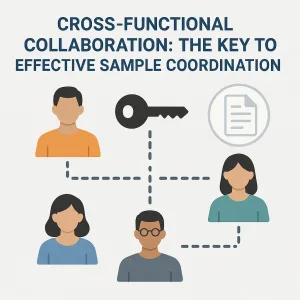Introduction
Project management is a critical discipline that plays a vital role across various industries, from construction and IT to healthcare and finance. As organizations increasingly recognize the importance of effective project management in achieving their goals, the demand for skilled project managers continues to rise. This growing need highlights the significance of project management as a career path, particularly for entry-level professionals eager to make their mark in the workforce.
For those just starting their careers, obtaining project management certifications can be a game-changer. These credentials not only validate an individual’s knowledge and skills but also enhance their employability in a competitive job market. Certifications such as the Certified Associate in Project Management (CAPM) and others provide a structured way for entry-level professionals to demonstrate their commitment to the field and their readiness to take on project management responsibilities.
Moreover, pursuing certifications can equip aspiring project managers with essential skills, including team dynamics, communication strategies, and conflict resolution techniques, which are crucial for fostering collaboration and motivating teams. By investing in their professional development through certifications, entry-level professionals can position themselves as valuable assets to potential employers.
In this blog section, we will explore the top five project management certifications that can serve as a stepping stone for entry-level professionals looking to advance their careers. These certifications not only enhance skill sets but also open doors to new opportunities in the ever-evolving landscape of project management.
Why Certifications Matter for Entry-Level Project Managers
Obtaining certifications can significantly enhance the employability and skills of entry-level professionals. Here are some key benefits of pursuing project management certifications:
- Increased Job Opportunities and Competitive Edge: Certifications such as the Certified Associate in Project Management (CAPM) provide a formal recognition of foundational project management skills. This credential is particularly beneficial for entry-level professionals, as it can make candidates more attractive to employers looking for individuals who understand project management principles and practices. In fact, many certified project management professionals report easier access to international career opportunities, which can lead to a broader range of job options and potentially higher salaries [1][4].
- Demonstration of Commitment to the Profession and Continuous Learning: Earning a project management certification showcases a professional’s dedication to their career and their willingness to invest time and effort into their development. This commitment is crucial in a field that is constantly evolving, as it signals to employers that the candidate is proactive about staying current with industry standards and practices. Certifications often require ongoing education, which further emphasizes the importance of continuous learning in the project management profession [3][10].
- Validation of Skills and Knowledge Through Recognized Standards: Certifications serve as a benchmark for assessing an individual’s skills and knowledge in project management. They provide a structured framework that validates a candidate’s understanding of essential concepts, such as project integration management, scope, and scheduling. This validation is particularly important for entry-level professionals who may lack extensive work experience but possess the theoretical knowledge necessary to succeed in project roles [9][15]. By obtaining a certification, candidates can demonstrate their competence and readiness to take on project management responsibilities, thereby increasing their chances of being hired [7][8].
Top 5 Project Management Certifications
For entry-level professionals looking to advance their careers in project management, obtaining relevant certifications can significantly enhance employability and skill sets. Here are five certifications that are particularly beneficial for those starting in the field:
- Certified Associate in Project Management (CAPM): The CAPM certification provides an introduction to fundamental project management concepts, making it an excellent starting point for newcomers. It is globally recognized, which can help candidates stand out in a competitive job market. This certification is ideal for individuals seeking to demonstrate their understanding of project management processes and terminology, thereby improving their marketability to potential employers [10][14][15].
- Project Management Professional (PMP) – Eligibility Requirements: Although the PMP certification is considered advanced, understanding its eligibility requirements can be beneficial for early career professionals. Familiarizing oneself with the prerequisites, such as the necessary experience and education, can help aspiring project managers prepare effectively for future certification. This knowledge can also guide them in gaining relevant experience and skills that align with the PMP standards [1][8].
- Agile Certified Practitioner (PMI-ACP): The PMI-ACP certification focuses on Agile methodologies, which are increasingly popular in project management, especially in technology-driven environments. This certification is perfect for tech-savvy professionals who wish to enhance their understanding of Agile practices and frameworks, making them more attractive to employers looking for flexibility and innovation in project management [5][6].
- PRINCE2 Foundation: The PRINCE2 Foundation certification offers a structured approach to project management and is widely used in Europe and beyond. It equips professionals with a comprehensive understanding of the PRINCE2 methodology, which emphasizes organization and control throughout the project lifecycle. This certification is particularly valuable for those looking to work in environments where PRINCE2 is the preferred project management framework [11][12].
- CompTIA Project+: The CompTIA Project+ certification is an entry-level credential that covers essential project management concepts. It is designed for IT professionals managing smaller, less complex projects, making it a suitable choice for those new to project management. This certification helps individuals gain foundational knowledge and skills that are applicable across various industries [3][4][6].
How to Choose the Right Certification for You
Selecting the right project management certification is a crucial step for entry-level professionals aiming to enhance their employability and skills. Here are some key points to consider when making your decision:
- Assessing Personal Career Goals and Industry Requirements: Understanding your career aspirations is essential. Different industries may favor specific certifications, so it’s important to research which certifications are in demand within your desired field. For instance, the Certified Associate in Project Management (CAPM) is an excellent entry-level certification offered by the Project Management Institute (PMI), which is recognized globally and can help you demonstrate your understanding of project management fundamentals [1][10].
- Considering Time and Financial Investment: Each certification comes with its own set of requirements, including time commitments for training and preparation, as well as financial costs. For example, the CAPM requires just 23 hours of training, making it a relatively accessible option for those new to project management [13]. On the other hand, more advanced certifications may require several years of experience and a greater financial investment, so it’s important to weigh these factors against your current situation and budget [6][9].
- Evaluating Alignment with Current Job Roles or Desired Positions: It’s beneficial to consider how a certification aligns with your current job role or the position you aspire to attain. Certifications like the CompTIA Project+ are designed for entry-level professionals and can be particularly useful for those in IT or smaller project environments [14]. Assessing whether a certification will enhance your skills relevant to your current job or help you transition into a new role is vital for making an informed choice [15].
By carefully evaluating these factors, you can select a project management certification that not only enhances your skills but also aligns with your career goals, ultimately setting you on a path to success in the field of project management.
Preparation Tips for Certification Exams
For entry-level professionals aiming to enhance their employability and skills in project management, obtaining a certification can be a significant step forward. Here are some actionable strategies to effectively prepare for project management certification exams:
- Creating a Study Plan and Setting Realistic Timelines: Developing a structured study plan is crucial for effective preparation. Start by assessing the exam content and breaking it down into manageable sections. Allocate specific timeframes for each topic, ensuring that you cover all necessary material before the exam date. Setting realistic timelines helps maintain motivation and reduces the risk of last-minute cramming, which can lead to increased stress and lower retention of information.
- Utilizing Resources Such as Online Courses, Study Guides, and Practice Exams: Leverage a variety of resources to enhance your understanding of project management concepts. Online courses can provide structured learning experiences, while study guides offer concise summaries of key topics. Additionally, practice exams are invaluable for familiarizing yourself with the exam format and types of questions you may encounter. For instance, tools like Pocket Prep offer extensive practice questions with detailed explanations, which can be particularly beneficial for reinforcing your knowledge and identifying areas that need further review [2][3].
- Joining Study Groups or Forums for Knowledge Sharing and Motivation: Engaging with peers through study groups or online forums can significantly enhance your preparation experience. These platforms provide opportunities for knowledge sharing, allowing you to gain different perspectives on complex topics. Moreover, being part of a study group can foster motivation and accountability, as members encourage each other to stay on track with their study plans. Local chapters of the Project Management Institute (PMI) often host events and study sessions, which can be a great way to connect with other project management professionals [4][10].
By implementing these strategies, entry-level professionals can effectively prepare for their certification exams, ultimately enhancing their skills and employability in the competitive field of project management.
Conclusion
Obtaining relevant certifications can significantly enhance your employability and skill set. Here are some key benefits of pursuing project management certifications:
- Validation of Skills: Certifications serve as a formal recognition of your knowledge and skills in project management, making you a more attractive candidate to potential employers. They demonstrate your commitment to the profession and your ability to manage projects effectively.
- Increased Job Opportunities: Many employers prefer or even require certifications for project management roles. By obtaining a certification, you can open doors to a wider range of job opportunities and potentially higher salaries.
- Networking Opportunities: Engaging in certification programs often provides access to a community of professionals in the field. This network can be invaluable for mentorship, job leads, and professional growth.
- Enhanced Knowledge and Skills: The process of studying for a certification equips you with the latest methodologies, tools, and best practices in project management, ensuring that you are well-prepared to tackle real-world challenges.
- Career Advancement: Certifications can be a stepping stone to more advanced roles within project management. They not only enhance your resume but also provide you with the confidence and skills needed to take on greater responsibilities.
As you consider your career path in project management, investing in professional development through certifications is a strategic move. It not only boosts your qualifications but also demonstrates your dedication to continuous learning and improvement.
Find out more about Shaun Stoltz https://www.shaunstoltz.com/about/.
This post was written by an AI and reviewed/edited by a human.



